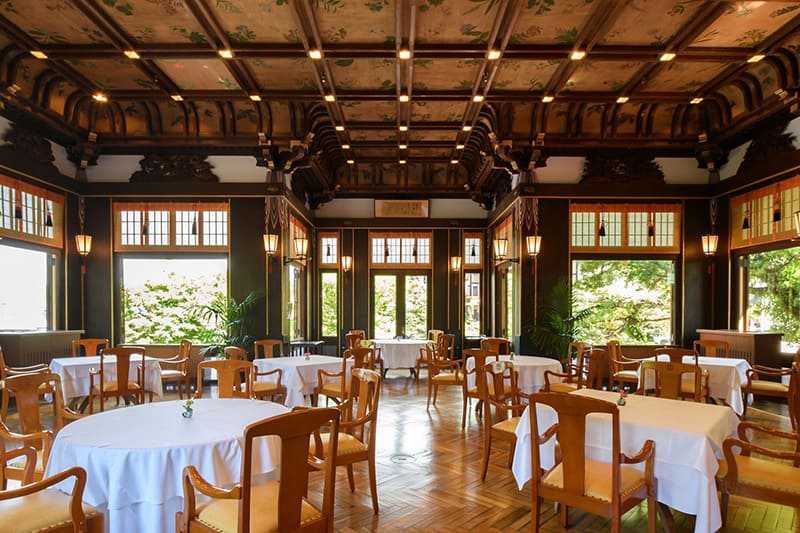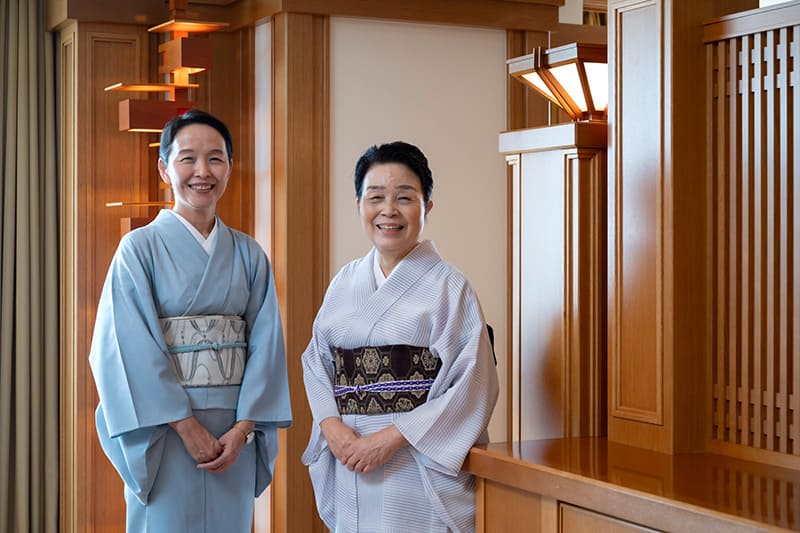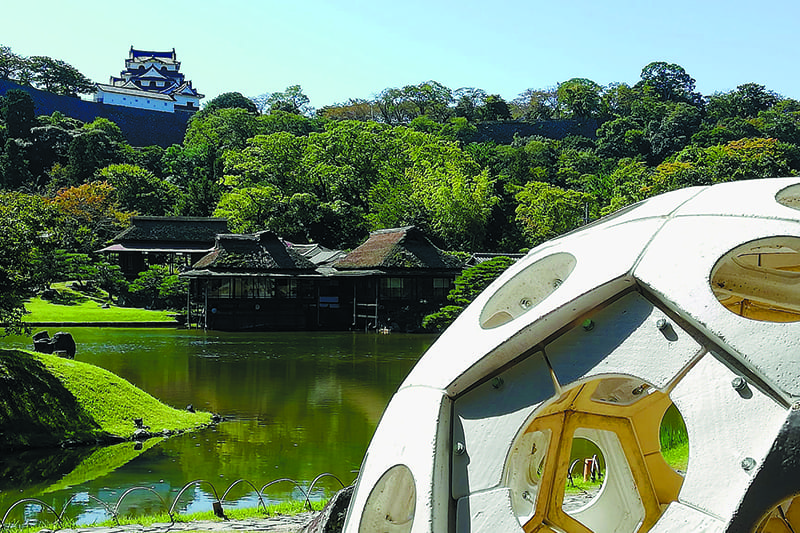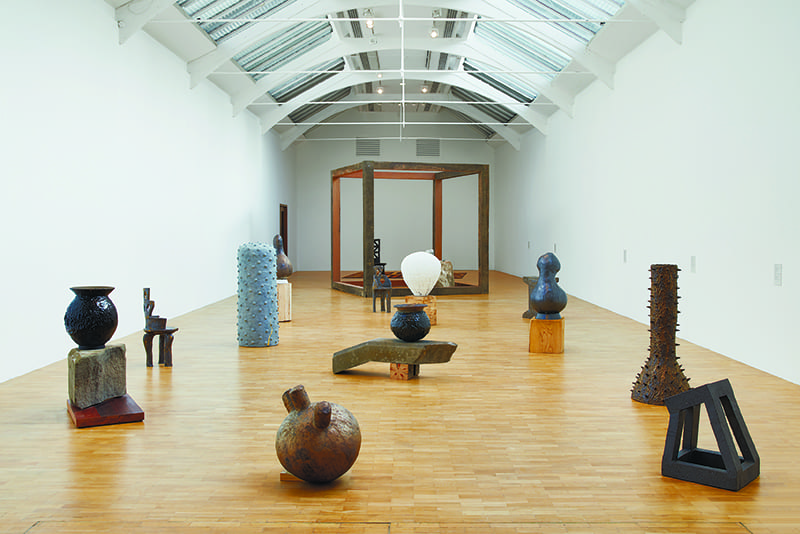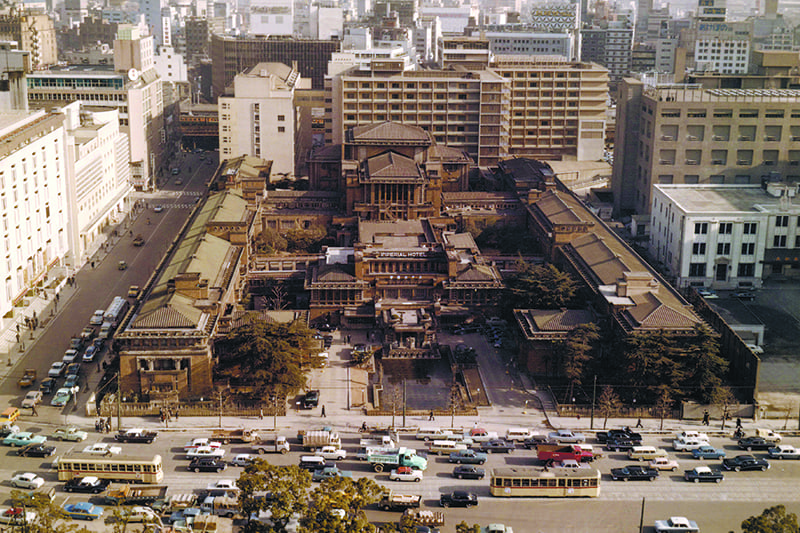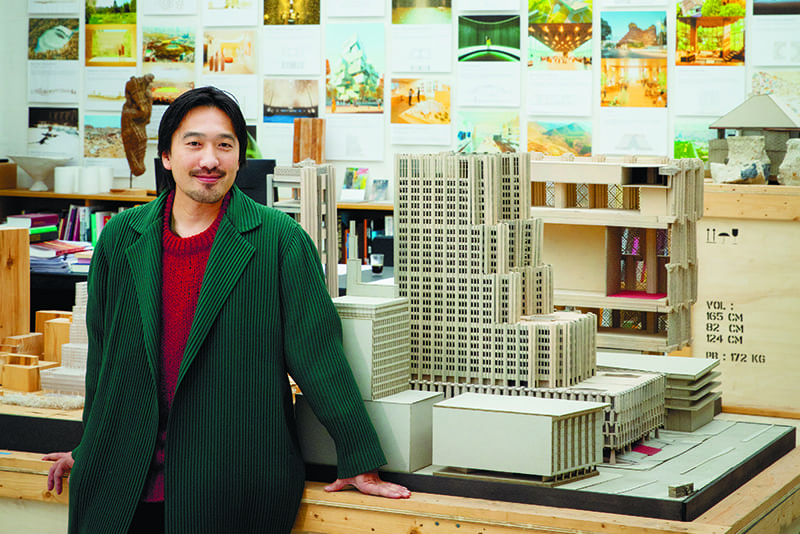December 16, 2021
Shiroiya Hotel sparks Maebashi transformation
MAEBASHI
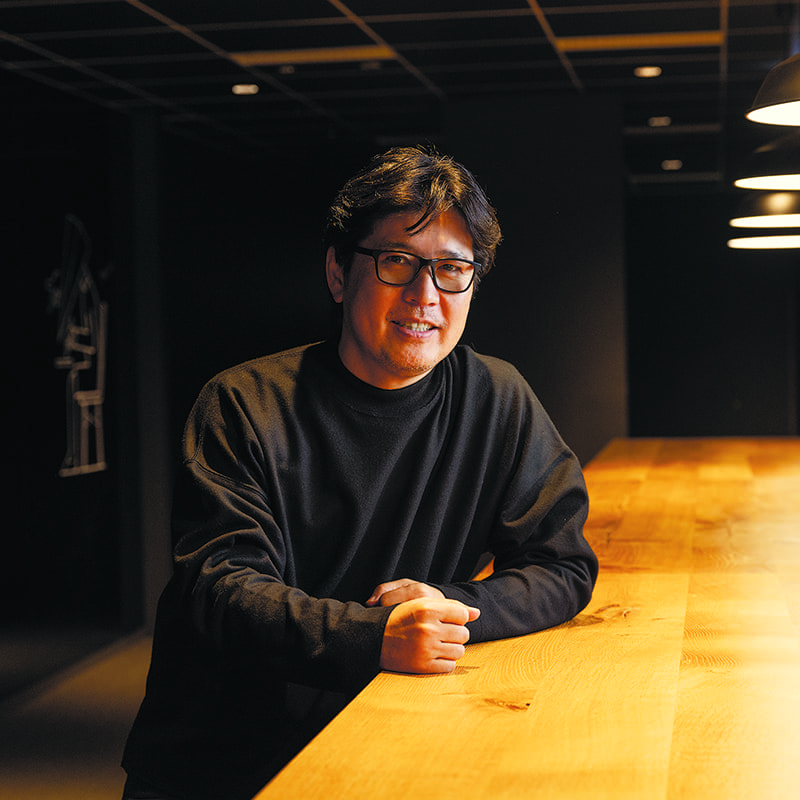
PHOTO: YOSHIAKI TSUTSUI
Aquite unusual hotel in the Gunma city of Maebashi has attracted worldwide attention in the scant year since it opened in December 2020. A lighting art creation by contemporary artist Leandro Erlich lines the enormous four-story-high atrium. Behind the front desk hangs a photographic work by contemporary art creator Hiroshi Sugimoto. The guest rooms, each featuring a different interior, were created by world-renowned designers including Jasper Morrison and Michele de Lucchi. This is Shiroiya Hotel, the astonishing art hotel that brought a famous 300-year-old Japanese inn back to life.
About 90 minutes by train from Tokyo Station, Maebashi is a regional city with a population of 330,000. Situated near the center of Gunma, it is the capital of the prefecture but its population has declined since peaking in 2000. Underutilized real estate, including vacant and disused land, had increased to the point where “shuttered streets” lined with closed-up shops became a problem for the city. It was Hitoshi Tanaka, a Maebashi native and founder of the eyewear brand Jins, who changed this situation. The Shiroiya Hotel, which opened in December 2020, was the first in a succession of projects that Tanaka has undertaken.
Tanaka said: “The experience that spurred me to start community contribution activities was receiving the Ernst & Young World Entrepreneur of the Year Award in 2010 and participating in the international convention in Monaco in 2011. Entrepreneurs from around the world came to the event, and they were all committed to social contribution projects as a matter of course.” Encountering these entrepreneurs had a major impact on his thinking.
Tanaka began by creating programs to nurture entrepreneurs. In the year 2013 he launched the Gunma Innovation Award, which supports and promotes the launch of new businesses in the prefecture, and in 2014 he opened the Gunma Innovation School to provide entrepreneurship training to students as well as those already in the working world. In the course of these activities, Tanaka learned that the venerable ryokan inn Shiroiya was in danger of disappearing.
“An inn with a 300-year history had been put up for sale. If it became a vacant lot and a new building was put up in its place, one more piece of Maebashi’s identity would be lost,” he said. “I was inspired by the energy of young people and artists who were enthusiastically carrying out community revitalization work, and decided to start by purchasing the building.”
At the time, Tanaka said, he was still thinking of leaving the hotel’s management to other people, but was unable to find a partner. “The reason was that no one was attracted to Maebashi as a location. So I thought, if that’s the case, I’ll change the city. Even though I’m not a government official, I decided to work out a vision for city planning.”
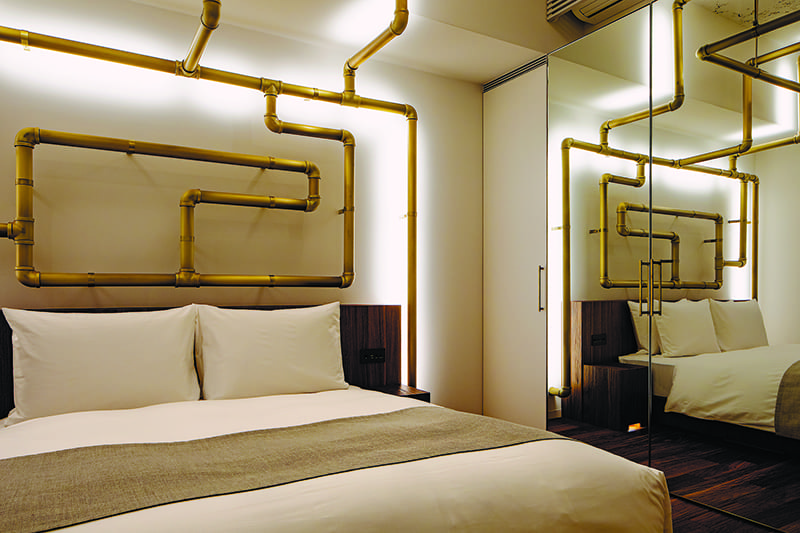
PHOTO: SHINYA KIGURE
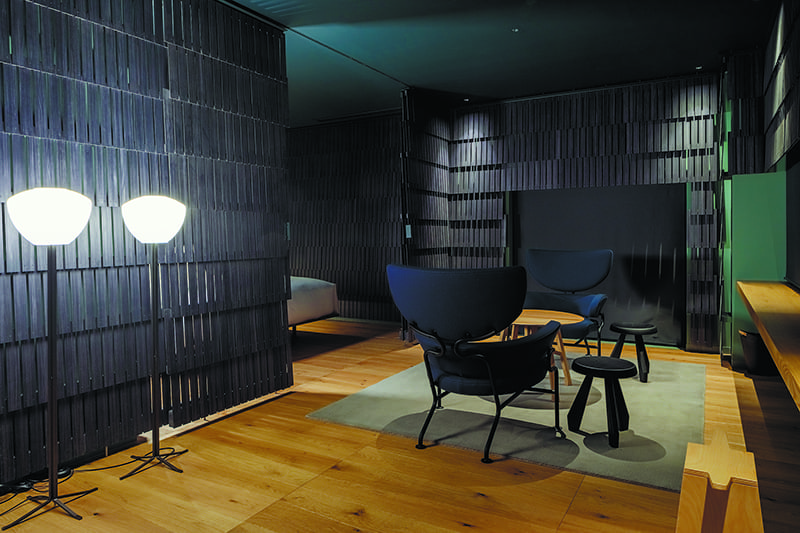
PHOTO: SHINYA KIGURE
Shiroiya Hotel
Opened in 2020, this 25-room hotel was created through the renewal of Shiroiya, a venerable three-century-old ryokan. Artists and designers such as Leandro Erlich, Jasper Morrison and Michele De Lucchi were involved in the project.
● 2-2-15 Honcho, Maebashi-shi, Gunma
Tel: 027-231-4618
Tanaka then commissioned the German consulting company KMS Team. In engaging a major overseas consulting firm, his aim was to discover a “new Maebashi” from an outside perspective. KMS Team came up with the promotional slogan “Where Good Things Grow.” From there, copywriter Shigesato Itoi, another Maebashi native, suggested the word “mebuku” (to sprout). The city planning vision was thus established.
At this point, Tanaka had already decided to undertake the hotel’s management himself. He called on architect Sou Fujimoto to handle the renovation. The journey from purchasing the building to opening the hotel took 6½ years.
“I made it a point not to think about things in terms of calculation. As we moved ahead with the project, we ignored numerically measurable values like profit ratio and productivity,” he said. “Instead of trying to fit a lot of rooms in, we prioritized the beauty and appeal of the bold atrium. We’d also decided that we wouldn’t imitate anything else. A lot of journalists visit Shiroiya Hotel, and they always say, ‘This doesn’t look like any other hotel in the world.’ That makes me happy.”
Shiroiya Hotel has gained worldwide recognition and received a succession of international accolades, including the 2021 AD Great Design Hotel Award from the popular American design magazine Architectural Digest, the International Travel Awards’ Best New Hotel in Japan 2021 prize, and inclusion as one of the “best design hotels” of 2021 in the British travel magazine National Geographic Traveller.
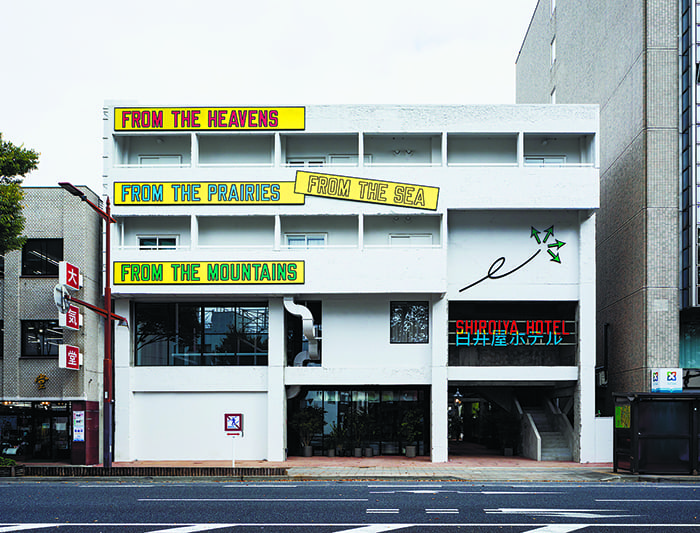
PHOTO: SHINYA KIGURE
In parallel with the regeneration of Shiroiya Hotel, Tanaka has carried out a variety of other projects. These include revitalizing a shopping district by opening a pasta restaurant, a traditional Japanese confectionery and a Japanese-style seafood restaurant; and pursuing a bold plan for the park-like greening of the roads around the shopping district. In April 2021 he opened Jins Park, a store incorporating a bakery. More than half of the structure comprises an open space that visitors can use as they like. On holidays the store is filled with families and young people.
“The hotel is what sparked Maebashi’s transformation,” Tanaka said. “We’re heading into a time when the private sector creates public spaces, and Shiroiya Hotel was the first project to adopt that idea. A cafe, a bakery and even a store specializing in fruit tarts were opened on the premises, and they’re always bustling with local people. The lobby was designed in such a way that not only hotel guests but anyone who lives in Maebashi can go in and out freely and feel at ease. If locals and visitors from other areas have opportunities to meet, things that had once been immobile will start to move. A hotel is a place where everything intersects. I believe the energy this generates will help transform local areas.”
民間による“公共”の試み。ホテルを起爆剤に街を変える。
2020年12月の開業からわずか一年で世界中から注目されるようになったちょっと変わったホテルが群馬県前橋市にある。創業300年の老舗旅館を再生させたアートホテル〈白井屋ホテル〉だ。手がけたのは前橋出身のアイウエアブランド〈JINS〉の創業者、田中仁。「大切にしたのは、算数で物事を考えないこと。利益率や生産性、数字で測れる価値は無視して物事を進めました」。世界的デザイナーや現代美術作家も関わった空間は、世界のホテルアワードで高く評価された。
ホテル再生と並行して、商店街にレストランなどをオープンさせて活気を生みだしたり、今後は商店街周辺の道路を緑化する計画もある。2021年にはベーカリーを併設したショップ〈JINS PARK〉もオープンした。
「これからは民間が公共をつくる時代。その考えを最初に踏襲したのがこのホテル。敷地内にはカフェやショプもあり、地元の人々で賑わっています。土地の人と、外から来た人が出会えば、固定化されていたものが動き出す。そのエネルギーが地方を変えると信じています」
Return to Sustainable Japan Magazine Vol. 7 article list page

